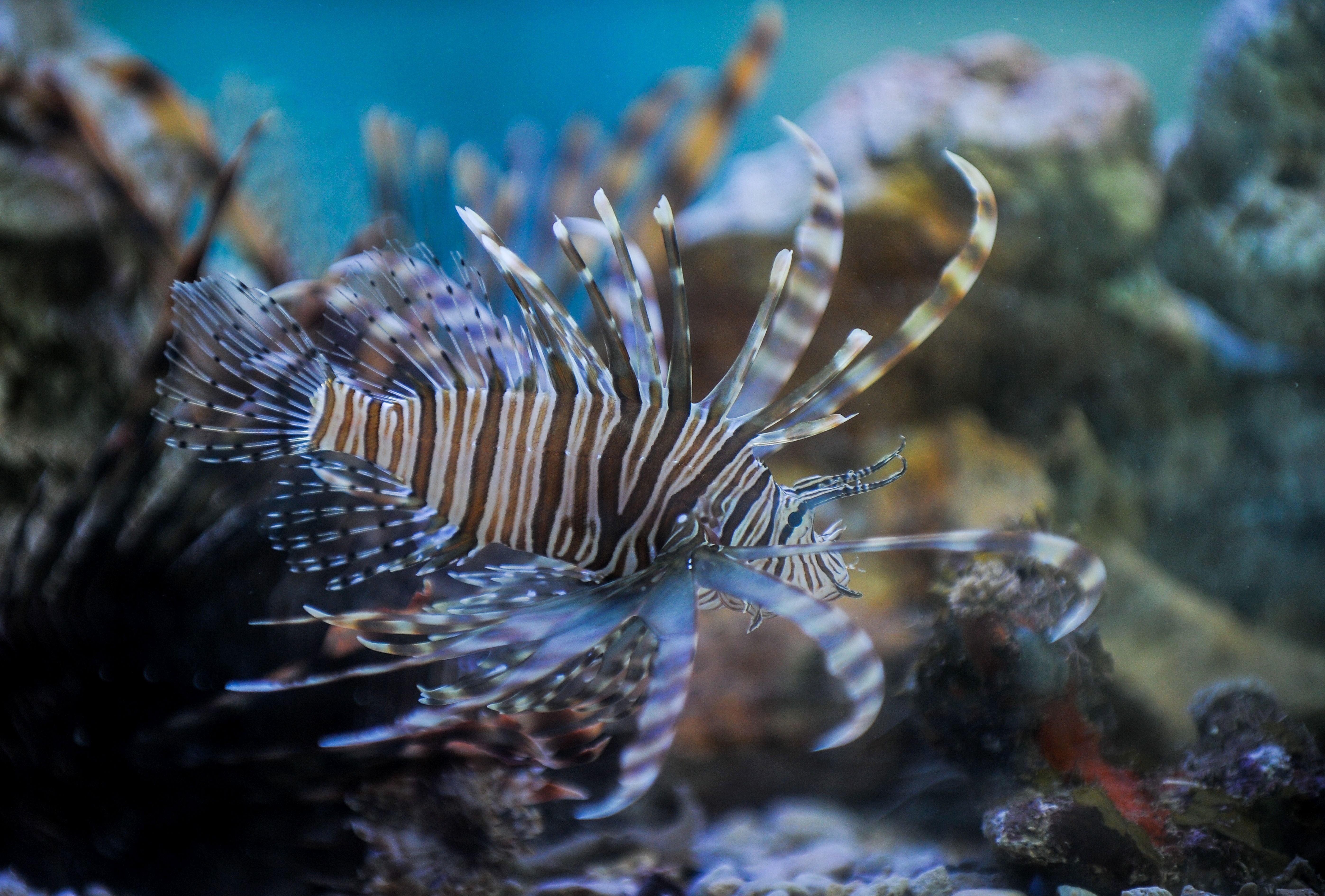Deadly lionfish that can paralyse humans found for first time off UK shores
The fish have venomous spines which deliver painful stings.

Your support helps us to tell the story
From reproductive rights to climate change to Big Tech, The Independent is on the ground when the story is developing. Whether it's investigating the financials of Elon Musk's pro-Trump PAC or producing our latest documentary, 'The A Word', which shines a light on the American women fighting for reproductive rights, we know how important it is to parse out the facts from the messaging.
At such a critical moment in US history, we need reporters on the ground. Your donation allows us to keep sending journalists to speak to both sides of the story.
The Independent is trusted by Americans across the entire political spectrum. And unlike many other quality news outlets, we choose not to lock Americans out of our reporting and analysis with paywalls. We believe quality journalism should be available to everyone, paid for by those who can afford it.
Your support makes all the difference.A man has caught a deadly fish capable of paralysing and killing humans at a popular tourist spot in Dorset.
Arfon Summers, 39, caught the six-inch lionfish at Chesil Beach on Thursday, thought to be the first time the species has been found in British waters.
Summers had hoped to hook a triggerfish with the arrival of the warmer waters, instead managing to catch the lionfish which had 13 venomous spines.
He told The Sun: “My mind was blown, a lionfish is a new offshore personal best. It’s no doubt the ocean is getting warmer to house these.
“I didn’t let it go due to it being an invasive species.”
Lionfish are usually found in the South Pacific and Indian Ocean, though have spread to the Mediterranean threatening the region’s ecosystem.
They are mostly found in all marine habitats in warm waters of depths from one to 300 feet.
They are the top predators in many coral reefs, consuming over 50 species of fish including economically and ecologically important species.
The slow-moving creatures are thought to be nocturnal hunters, using their fins to pursue and corner prey.
Lionfish have venomous spines which can cause extreme pain, sweating, respiratory problems, and even paralysis.
They have a distinctive brown, red and white stripes over its body, and 13 dorsal spines that can deliver the painful stings.
An adult can grow up to 18 inches, while younger fish may be as small as one inch.
Lionfish are not currently listed as a threatened or endangered species - however, depleting numbers of its prey in coral reefs may see a decline in its numbers.
Join our commenting forum
Join thought-provoking conversations, follow other Independent readers and see their replies
Comments